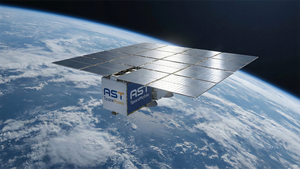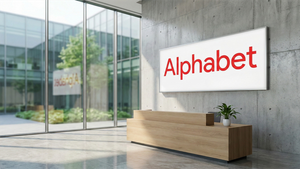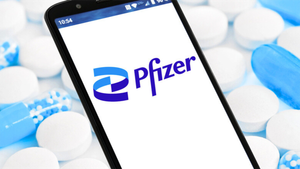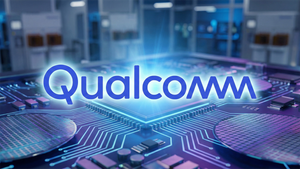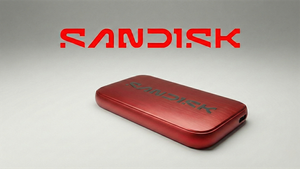- Data demonstrate efficacy and durability of vispa-cel, an allogeneic anti-CD19 CAR-T cell therapy, are on par with autologous CAR-T cell therapies in the confirmatory cohort (N=22) and with longer-term follow-up on patients who received optimized vispa-cel (N=35)
- 82% ORR, 64% CR rate, 51% PFS at 12 months in patients prospectively enrolled in partial HLA matching confirmatory cohort (N=22)
- 86% ORR, 63% CR rate, 53% PFS at 12 months in patients who received vispa-cel with an optimized profile (N=35)
- Vispa-cel is generally well-tolerated, allowing for administration in the outpatient setting
- Data highlight vispa-cel’s potential as best-in-class allogeneic CAR-T cell therapy for LBCL
- Conference call and webcast scheduled for today at 8:00 am ET
BERKELEY, Calif., Nov. 03, 2025 (GLOBE NEWSWIRE) -- Caribou Biosciences, Inc. (Nasdaq: CRBU), a leading clinical-stage CRISPR genome-editing biopharmaceutical company, today announced positive results from its ongoing ANTLER phase 1 clinical trial evaluating vispacabtagene regedleucel (vispa-cel; formerly CB-010), an allogeneic anti-CD19 CAR-T cell therapy, in patients with relapsed or refractory B cell non-Hodgkin lymphoma (r/r B-NHL).
“The ANTLER data mark an exciting advancement for the field of cellular immunotherapy,” said Mehdi Hamadani, MD, professor of medicine and section chief of hematologic malignancies at the Medical College of Wisconsin and an investigator on the ANTLER trial. “This clinical dataset demonstrates vispa-cel’s efficacy and durability are comparable to autologous CAR-T therapies, yet its off-the-shelf availability and favorable tolerability profile make it well suited for outpatient administration at both large academic centers and sophisticated community hospitals. This combination of robust clinical activity and accessibility could significantly broaden patient access to transformative CAR-T cell treatments, particularly for those who cannot wait or are ineligible for transplantation or autologous CAR-T cell therapies.”
As of the September 2, 2025, safety data cutoff date, the ANTLER trial has enrolled 84 patients, including a confirmatory cohort of 22 CD19-naïve second-line (2L) large B cell lymphoma (LBCL) patients. The confirmatory cohort was designed to prospectively confirm the positive outcomes of partial HLA matching (≥4 matched HLA alleles) observed in earlier retrospective analyses. Patients in the confirmatory cohort received vispa-cel at the recommended phase 2 dose (RP2D; 80×10⁶ CAR-T cells), and the data from this cohort, as of an efficacy data cutoff date of September 29, 2025, confirmed that a single dose of partially matched (≥4 matched HLA alleles) vispa-cel results in efficacy that is on par with approved autologous CAR-T cell therapies including an 82% overall response rate (ORR), a 64% complete response (CR) rate, and 51% progression-free survival (PFS) at 12 months (Table 1). Median follow-up for the confirmatory cohort is 6.0 months.
Table 1. ANTLER phase 1 trial endpoints
| Endpoints | Confirmatory cohort1 N=22 | Optimized profile2 N=35 | ||
| ORR | 82% | 86% | ||
| CR rate | 64% | 63% | ||
| Median PFS (95% CI) | NR (2.0, NE) | NR (2.8, NE) | ||
| 12-month PFS (95% CI) | 51% (28, 70) | 53% (34, 69) | ||
| Median DoR (95% CI) | NR (1.7, NE) | NR (2.1, NE) | ||
12L LBCL 4+ HLA matched, dosed with 80M vispa-cel CAR-T cells
22L (N=32) and 3L+ (N=3) LBCL patients treated with 40M, 80M, or 120M vispa-cel CAR-T cells optimized for multiple factors, including 2+ HLA matching and young donor-derived
CR: complete response; DoR: duration of response; HLA: human leukocyte antigen; NE: not evaluable; NR: not reached; ORR: overall response rate; PFS: progression-free survival
Data cutoff date for efficacy: September 29, 2025
The Company leveraged its large allogeneic CAR-T cell clinical data set (>140 patients dosed across multiple clinical trials) to identify key factors linked to successful patient outcomes. Two of those factors are donor age (young donors drive enhanced outcomes relative to older donors) and partial HLA matching (matching 2 or more [2+] alleles correlates with outcomes on par with autologous CAR-T cell therapies). Of the 84 patients dosed with vispa-cel, there are 35 CD19-naïve LBCL patients who received vispa-cel with an optimized profile (32 of these patients were 2L and 3 of these patients were 3L+). The optimized profile vispa-cel was manufactured from young donor-derived T cells, and the 35 patients matched a minimum of 2 HLA alleles with the T cell donor. Twenty of the 35 patients in the optimized profile cohort were enrolled in the confirmatory cohort, and the remaining 15 patients were enrolled in dose escalation or expansion.
Data from this 35-patient cohort further confirmed that the efficacy and durability of vispa-cel are on par with the autologous CAR-T cell therapies. Median follow-up for the optimized profile cohort was 11.8 months, and the longest responding patient, who completed the 2-year ANTLER trial and enrolled in the long-term follow-up study, is in complete response at 3 years post infusion. As of the September 29, 2025, efficacy data cutoff date, the results for the 35-patient optimized profile cohort included an 86% ORR, a 63% CR rate, and 53% PFS at 12 months (Table 1).
In all patients treated in ANTLER (N=84), vispa-cel has demonstrated a generally well-tolerated safety profile. As of the September 2, 2025, safety data cutoff date, treatment emergent adverse events at any grade in ≥25% of all patients who received vispa-cel were thrombocytopenia (62%), cytokine release syndrome (CRS; 55%), anemia (52%), neutropenia (39%), hypokalemia (26%), and leukopenia (26%). In the confirmatory and optimized profile cohorts, there were no cases of graft-versus-host disease (GvHD) or ≥grade 3 immune effector cell-associated neurotoxicity syndrome (ICANS), <5% patients experienced ≥grade 3 CRS, and there were manageable rates of infections and prolonged cytopenias (Table 2). The safety profile of vispa-cel allows for use in an outpatient setting.
“We believe that with these results, Caribou has achieved what the field has long sought — strong evidence that an allogeneic CAR-T cell therapy can be on par with the efficacy and durability of autologous treatments and broaden access with a safety profile that allows for outpatient use,” said Rachel Haurwitz, PhD, Caribou’s president and CEO. “This milestone positions vispa-cel as a potentially best-in-class allogeneic CAR-T cell therapy for patients with large B cell lymphoma. We believe we have a straightforward regulatory path toward full registration by following the FDA’s recommendation for a randomized, controlled phase 3 trial in second-line large B cell lymphoma, and we plan to refine our pivotal trial design in the coming months through continued engagement with the FDA.”
Table 2. ANTLER phase 1 trial safety data
Events, n (%) | All treated N=84 | Confirmatory cohort N=221 | Optimized profile N=352 | ||||
| All grade | ≥Grade 3 | All grade | ≥Grade 3 | All grade | ≥Grade 3 | ||
| ICANS | 12 (14) | 4 (5) | 1 (5) | 0 (0) | 1 (3) | 0 (0) | |
| CRS | 46 (55) | 1 (1) | 13 (59) | 1 (5) | 19 (54) | 1 (3) | |
| Infections | 43 (51) | 21 (25) | 9 (41) | 4 (18) | 20 (57) | 6 (17) | |
| Prolonged cytopenias3 | NA | 22/80 (28) | NA | 5/19 (26) | NA | 7/32 (22) | |
| IEC-HS4 | 2 (2) | 2 (2) | 1 (5) | 1 (5) | 1 (3) | 1 (3) | |
12L LBCL 4+ HLA matched, dosed with 80M vispa-cel CAR-T cells
22L (N=32) and 3L+ (N=3) LBCL patients treated with 40M, 80M, or 120M vispa-cel CAR-T cells optimized for multiple factors, including 2+ HLA matching and young donor-derived
3Prolonged cytopenias are defined as Grade 3 or 4 neutropenia, thrombocytopenia, or anemia ongoing at day 28 (+/- 5 days) post CAR-infusion, based on laboratory data, distinct from investigator-reported clinical adverse events.
4Includes one vispa-cel-related grade 5 IEC-HS that occurred on day 25 post-infusion.
CRS: cytokine release syndrome; IEC-HS: immune effector cell-associated hemophagocytic lymphohistiocytosis-like syndrome; NA: not applicable
Data cutoff date for safety: September 2, 2025
A cohort of third-line or later LBCL patients with prior exposure to CD19-targeted therapy enrolled 5 patients as of the September 2, 2025, safety data cutoff date. Enrollment in this cohort has been paused to focus on CD19-naïve patients.
Pivotal phase 3 trial for 2L LBCL for full approval
In recent interactions, the FDA has recommended the Company conduct a randomized, controlled trial in 2L LBCL CD19-naive patients who are ineligible for transplant and autologous CAR-T cell therapy, and the Company intends to follow this approach with its planned pivotal phase 3 clinical trial design, evaluating approximately 250 patients. Patients randomized to the study arm would receive a single dose of vispa-cel at the recommended phase 2 dose of 80×10⁶ CAR-T cells following lymphodepletion with cyclophosphamide and fludarabine, and patients randomized to the comparator arm would be treated with the investigator’s choice of standard of care immunochemotherapy agents. The primary endpoint is PFS, and an interim analysis of PFS is planned. Secondary endpoints would include ORR, complete response rate (CRR), duration of response (DoR), duration of complete response (DoCR), overall survival (OS), quality of life (QoL), and safety. This expected trial design reflects Caribou’s internal analysis and interactions with the FDA to date. The Company intends to further refine the pivotal trial design through continued engagement with the FDA prior to initiation. Caribou plans to bring vispa-cel closer to where patients live by leveraging community and academic sites within the U.S. and globally.
Webcast conference call today at 8:00 am ET
Caribou will host a live conference call and webcast on Monday, November 3 at 8:00 am ET to discuss the ANTLER trial data and the pivotal phase 3 clinical trial design, as well as the CaMMouflage phase 1 clinical trial for r/r multiple myeloma. The presenters will include:
- Mehdi Hamadani, MD, professor of medicine, section chief of hematologic malignancies at Medical College of Wisconsin, and investigator on the ANTLER trial
- Joseph McGuirk, DO, professor of hematology/oncology and division director for hematologic malignancies and cellular therapeutics at University of Kansas Cancer Center
- Adriana Rossi, MD, director of CAR-T and stem cell transplant clinical program at the center of excellence for multiple myeloma at Mt Sinai, and investigator on the CaMMouflage trial
- Rachel Haurwitz, PhD, president and chief executive officer, Caribou Biosciences
- Tina Albertson, MD, PhD, chief medical officer, Caribou Biosciences
A live webcast of the presentation will be accessible via Caribou’s website on the Events page. The archived webcast will be available on the Caribou website for 30 days after the event.
About vispacabtagene regedleucel
Vispacabtagene regedleucel (vispa-cel; formerly known as CB-010) is an allogeneic anti-CD19 CAR-T cell therapy being evaluated in patients with relapsed or refractory B cell non-Hodgkin lymphoma (r/r B-NHL). To Caribou’s knowledge, vispa-cel is the first allogeneic CAR-T cell therapy in the clinic with a PD-1 knockout, a genome-editing strategy designed to enhance CAR-T cell activity by limiting premature CAR-T cell exhaustion. The FDA granted vispa-cel Regenerative Medicine Advanced Therapy (RMAT), Orphan Drug, and Fast Track designations for B-NHL.
About the ANTLER phase 1 clinical trial
The ANTLER clinical trial is a multicenter, open-label phase 1 trial evaluating vispacabtagene regedleucel (vispa-cel; formerly CB-010) in adults with relapsed or refractory B cell non-Hodgkin lymphoma (B-NHL). Eighty-four patients have been treated in the ANTLER clinical trial as of September 2, 2025. Using a 3+3 enrollment strategy, safety and efficacy were assessed in 16 patients in dose escalation evaluating 40x106, 80x106, and 120x106 CAR-T cell dose levels with a lymphodepletion regimen of cyclophosphamide at 60 mg/kg/day for 2 days followed by fludarabine at 25 mg/m2/day for 5 days. Forty-one patients with 2L LBCL were enrolled in the dose expansion portion, and 80x106 CAR-T cells was selected as the recommended phase 2 dose (RP2D). An additional 22 patients with 2L LBCL were enrolled in the confirmatory cohort, which prospectively evaluated the Company’s partial HLA matching strategy. Five patients were enrolled in a cohort of third-line or later LBCL patients with prior exposure to CD19-targeted therapy. Additional information on the ANTLER trial (NCT04637763) can be found at clinicaltrials.gov.
About Caribou Biosciences, Inc.
Caribou is a clinical-stage CRISPR genome-editing biopharmaceutical company dedicated to developing transformative therapies for patients with devastating diseases. The Company’s genome-editing platform, including its Cas12a chRDNA technology, enables superior precision to develop cell therapies that are armored to potentially improve activity against diseases. Caribou is focused on vispacabtagene regedleucel (vispa-cel) and CB-011 as off-the-shelf CAR-T cell therapies that have the potential to provide broad access and rapid treatment for patients with hematologic malignancies. Follow the Company @CaribouBio and visit www.cariboubio.com.
Forward-looking statements and important information
This press release contains forward-looking statements within the meaning of the Private Securities Litigation Reform Act of 1995. In some cases, you can identify forward-looking statements by terms such as “may,” “will,” “should,” “expect,” “plan,” “anticipate,” “could,” “intend,” “target,” “project,” “contemplate,” “believe,” “estimate,” “predict,” “potential,” or “continue,” or the negative of these terms or other similar expressions, although not all forward-looking statements contain these words. These forward-looking statements include, but are not limited to, any statements regarding the initiation, timing, progress, strategy, plans, objectives, expectations (including as to the results) with respect to the Company’s CAR-T cell therapy product candidate clinical trials, including the expected design, protocol, and timing of initiation of the pivotal phase 3 clinical trial for vispa-cel in 2L LBCL CD19-naïve patients; its ability to successfully develop its CAR-T cell therapy product candidates and to obtain and maintain regulatory approval for these product candidates; the likelihood of its clinical trials demonstrating safety and efficacy of its CAR-T cell therapy product candidates; the beneficial characteristics, safety, efficacy, therapeutic effects, and potential advantages of its CAR-T cell therapy product candidates; and the expected timing or likelihood of regulatory filings and approval for its CAR-T cell therapy product candidates. Management believes that these forward-looking statements are reasonable as and when made. However, such forward-looking statements are subject to risks and uncertainties, and actual results may differ materially from any future results expressed or implied by the forward-looking statements. Risks and uncertainties include, without limitation, risks inherent in the development of allogeneic CAR-T cell therapy products; uncertainties related to the initiation, cost, timing, progress, and results of its current and future clinical trials; the risk that initial, preliminary, or interim clinical trial data will not ultimately be predictive of the safety and efficacy of its CAR-T cell therapy product candidates or that clinical outcomes may differ as patient enrollment continues and as more patient data becomes available; the risk that different conclusions or considerations are reached once additional data have been received and fully evaluated; the ability to obtain key regulatory input and approvals; and risks related to its limited operating history, history of net operating losses, financial position, and its ability to raise additional capital as needed to fund its operations and CAR-T cell therapy product candidate development, including the ability to fully fund its pivotal phase 3 clinical trial for vispa-cel; as well as other risk factors described from time to time in Caribou’s filings with the Securities and Exchange Commission (SEC), including its Annual Report on Form 10-K for the year ended December 31, 2024, and subsequent SEC filings. In light of the significant uncertainties in these forward-looking statements, you should not rely upon forward-looking statements as predictions of future events. Except as required by law, Caribou undertakes no obligation to update publicly any forward-looking statements for any reason.
Caution should be exercised when interpreting results from separate trials involving commercially approved autologous CAR-T cell therapies. The results of autologous CAR-T cell therapies referenced in this press release have been derived from publicly available reports of clinical trials not conducted by Caribou, and Caribou has not performed any head-to-head trials comparing any of these autologous CAR-T cell therapies with vispa-cel. As such, the results of these autologous CAR-T cell therapy clinical trials may not be comparable to clinical results for vispa-cel. The autologous CAR-T cell therapy clinical trials vary in material ways from the ANTLER clinical trial for vispa-cel including with respect to trial design and duration, patient population, patient characteristics, clinical trial phase, treatment protocols, investigators, and other important factors. As a result, cross-trial comparisons may have no interpretive value on Caribou’s existing or future clinical results. For further information and to understand these material differences, you should read the reports for the autologous CAR-T cell therapy clinical trials and the sources included in Caribou’s webcast presentation and its corporate presentations on its website.
Caribou Biosciences, Inc. contact:
Peggy Vorwald, PhD
investor.relations@cariboubio.com
media@cariboubio.com


